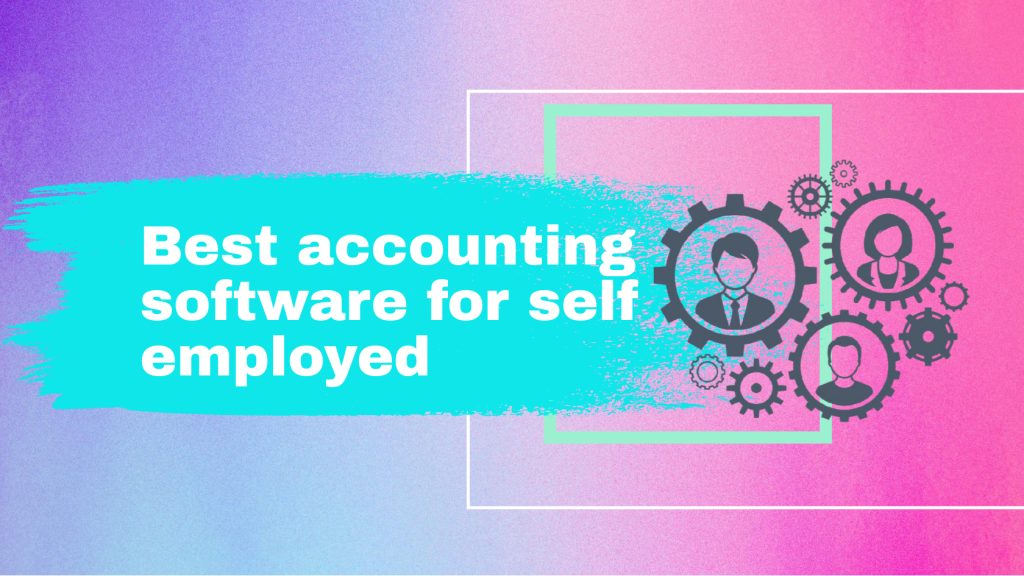Managing finances can be tough for self-employed individuals. The right accounting software makes this task easier.
Being self-employed means handling every aspect of your business. From tracking expenses to invoicing clients, accounting software can be your best friend. The right tool can save time and avoid costly mistakes. It can also help you stay organized and compliant with tax laws.
But with so many options available, choosing the best one can be overwhelming. This guide will help you find the best accounting software for your needs. We will discuss features, benefits, and what to look for in a reliable accounting tool. Let’s dive in and simplify your financial management tasks.

Credit: m.youtube.com
Introduction To Accounting Software
Accounting software is a powerful tool for self-employed individuals. It helps manage finances efficiently. This software automates tasks like invoicing, tracking expenses, and preparing tax returns. With the right accounting software, you can save time and reduce errors.
Importance For Self-employed
Self-employed professionals need to handle all aspects of their business. This includes accounting. Using accounting software simplifies financial management. It ensures accuracy and compliance with tax laws. It also provides insights into your business performance. These insights help make informed decisions.
- Time-saving: Automates repetitive tasks.
- Accuracy: Reduces human errors.
- Compliance: Helps adhere to tax regulations.
- Insights: Offers valuable financial data.
Key Features To Look For
When choosing accounting software, certain features are essential. These features ensure the software meets your needs.
- Invoicing: Easily create and send invoices.
- Expense Tracking: Monitor and categorize expenses.
- Tax Preparation: Simplify tax filing.
- Bank Integration: Sync with your bank accounts.
- Reporting: Generate financial reports.
These features help manage your finances effectively. Select software that offers these capabilities. Ensure it is user-friendly and within your budget.
Quickbooks Self-employed
For self-employed individuals, managing finances can be a daunting task. QuickBooks Self-Employed aims to simplify this process. This accounting software helps freelancers, contractors, and small business owners manage their expenses, track mileage, and prepare for taxes.
Overview
QuickBooks Self-Employed is designed specifically for self-employed individuals. It offers features tailored to meet their unique needs. The software allows users to track income and expenses, capture and organize receipts, and prepare for quarterly taxes.
One of the standout features is its automatic mileage tracking. This helps users maximize their tax deductions. The software also integrates seamlessly with TurboTax, making tax season less stressful.
Pros And Cons
| Pros | Cons |
|---|---|
|
|
QuickBooks Self-Employed is intuitive and easy to use. It offers many features that cater to the needs of freelancers and small business owners. However, it lacks some advanced features available in other accounting software.
Freshbooks
FreshBooks is a popular accounting software designed for self-employed individuals. It offers a user-friendly interface and powerful features. FreshBooks simplifies invoicing, expense tracking, time tracking, and more. This makes it easier for freelancers and small business owners to manage their finances.
Overview
FreshBooks provides a comprehensive suite of tools for accounting. It is designed specifically for the self-employed. Its cloud-based platform allows users to access their accounts from anywhere. The interface is intuitive, making it easy for users to navigate. FreshBooks also integrates with other business applications. This enhances its functionality and provides a seamless experience.
Pros And Cons
| Pros | Cons |
|---|---|
|
|
Overall, FreshBooks is a solid choice for self-employed professionals. It simplifies accounting tasks and helps manage finances effectively.
Xero
Xero is a powerful tool for self-employed professionals. It simplifies accounting tasks and offers a user-friendly interface. Xero helps manage finances efficiently and ensures everything is in order. Let’s delve into the details of Xero and see why it stands out.
Overview
Xero is designed for small businesses and self-employed individuals. It offers features like invoicing, expense tracking, and bank reconciliation. Xero also integrates with various third-party apps. This makes it versatile and adaptable to different business needs.
Here are some key features of Xero:
- Invoicing: Create and send professional invoices with ease.
- Expense Tracking: Record and categorize expenses quickly.
- Bank Reconciliation: Match transactions with your bank statement.
- Integrations: Connect with over 800 third-party apps.
- Reports: Generate financial reports to understand your business better.
Pros And Cons
Every software has its strengths and weaknesses. Here’s a quick look at Xero’s pros and cons:
| Pros | Cons |
|---|---|
|
|
Comparative Analysis
Choosing the right accounting software can be a game-changer for self-employed individuals. It’s essential to find a solution that fits your needs and budget. In this comparative analysis, we’ll look at the best options available. We’ll focus on two main factors: Pricing and User Experience. This will help you make an informed decision.
Pricing
Pricing is a crucial factor for self-employed individuals. Here’s a quick comparison of some popular accounting software options:
| Software | Basic Plan (Monthly) | Premium Plan (Monthly) |
|---|---|---|
| QuickBooks | $15 | $40 |
| FreshBooks | $15 | $50 |
| Xero | $11 | $62 |
QuickBooks offers a basic plan at $15 per month. Their premium plan is $40 per month. FreshBooks also starts at $15 per month. Their premium plan is $50 per month. Xero is slightly cheaper with a basic plan at $11 per month. Their premium plan is $62 per month.
User Experience
User experience is just as important as pricing. You need software that’s easy to use. Here’s a brief overview of the user experience for each option:
- QuickBooks: Known for its user-friendly interface. Easy to navigate. Good for beginners.
- FreshBooks: Great for invoicing and time tracking. Simple dashboard. Clean design.
- Xero: Modern interface. Cloud-based. Good for collaboration. Steeper learning curve.
QuickBooks is praised for its user-friendly interface. It’s easy to navigate. Ideal for beginners. FreshBooks shines in invoicing and time tracking. It has a clean design. Xero offers a modern interface. It’s cloud-based and good for teamwork. But it has a steeper learning curve.

Credit: m.youtube.com

Credit: ecombalance.com
Frequently Asked Questions
What Is The Best Accounting Software For Self-employed?
QuickBooks Self-Employed is highly recommended. It offers easy expense tracking and invoicing.
Can Accounting Software Help With Taxes?
Yes, accounting software can help track expenses and income. This makes tax preparation easier.
Is Cloud-based Accounting Software Secure?
Yes, most cloud-based accounting software uses encryption. This ensures your financial data is safe.
How Much Does Accounting Software Cost For Self-employed?
Prices vary. Basic plans start around $10 per month. Advanced features cost more.
Do I Need Accounting Software If I’m Self-employed?
Yes, it helps manage finances, track expenses, and prepare taxes. Saves time and reduces stress.
Conclusion
Choosing the right accounting software for self-employed individuals is crucial. It simplifies managing finances and saves time. The best options offer user-friendly features and affordability. Always consider your business needs before deciding. A good software will help you stay organized and compliant.
Remember, investing in the right tool can make a big difference. So, take your time and pick the one that fits your needs. Start managing your finances better today. This will lead to less stress and more focus on growing your business.




